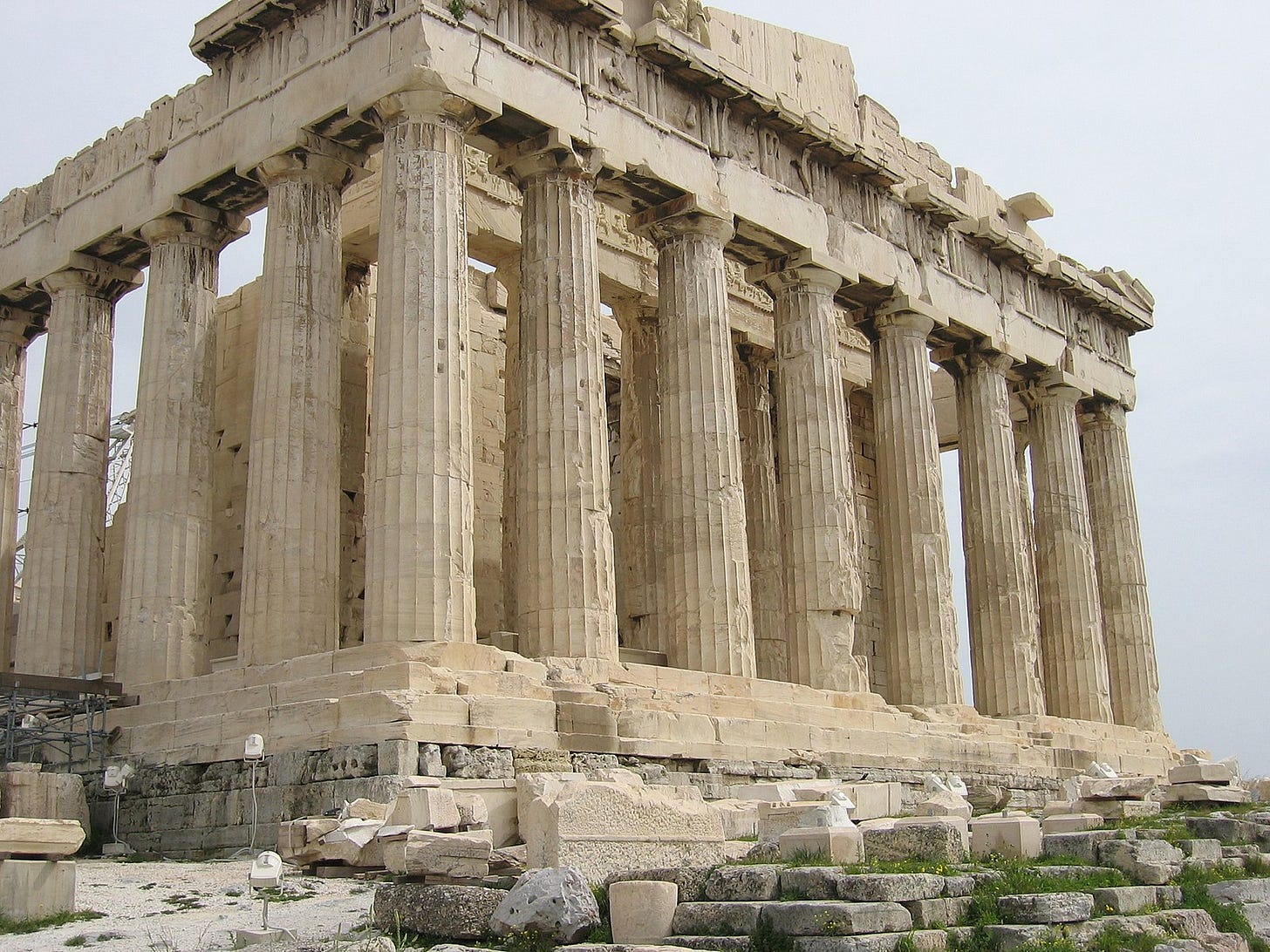Is Contemporary Culture Really That Bad?
Also: Sad music, a “family history” of humanity, Drew Barrymore out as National Book Award host, and more.

In the latest issue of Commentary, Joseph Epstein complains that culture—Western culture—is in a terrible state:
Ask a cultivated person who his or her favorite living painters are, or classical composers, or novelists and poets, and you are not likely to get a ready answer, or any answer at all. I have no satisfactory answers to these questions myself. I know no contemporary painters whose work I love in the way I love the paintings of Raphael, Vermeer, Gustave Caillebotte. I know no modern composers I care to hear after the now long-dead Aaron Copland, Maurice Ravel, and Igor Stravinsky. The last modern poet I admire is Philip Larkin, who died in 1985. I eagerly await the next book of no living novelist, and I haven’t been to a play in the past decade. As is I suspect the case with many other people who strive to live the cultivated life, in recent years I have been living almost entirely on the culture of the past.
He goes on to note that culture goes through highs and lows and that we are in a low right now because those institutions—print media and the university—that were previously responsible for nourishing culture have abandoned it for politics. And because the Internet has made us dumb.
I have read Epstein for a long time with great pleasure, and it’s hard to disagree with his argument in the abstract—culture is in a terrible state—and his account of how it got so terrible, but it’s a little more complicated.
First, I simply don’t believe that if you ask a “cultivated person” to name a favorite living painter, composer, novelist, or poet, he or she will simply stare blankly. In fact, I know this isn’t true (and if it is for Epstein, I am genuinely curious to meet his cultivated friends).
Keep reading with a 7-day free trial
Subscribe to Prufrock to keep reading this post and get 7 days of free access to the full post archives.



